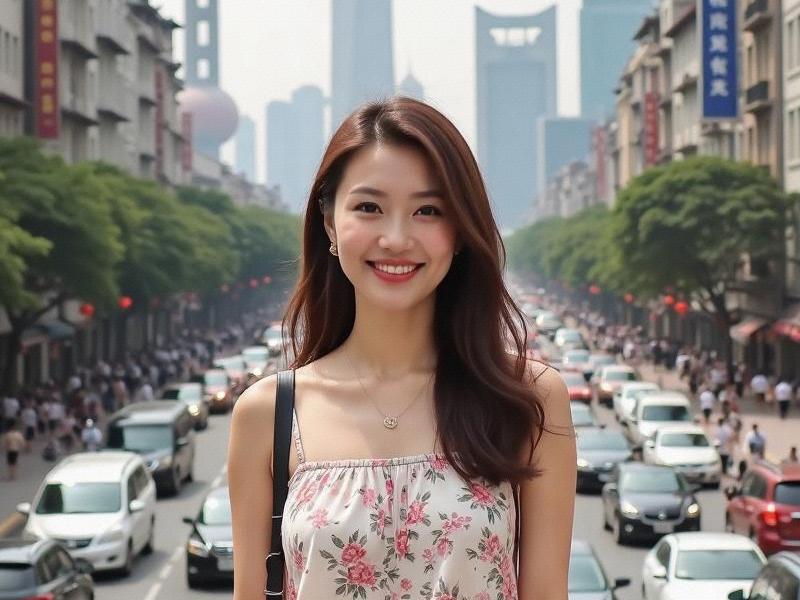This feature explores how Shanghai's women are blending traditional aesthetics with global influences to crteeaa distinctive urban beauty culture that challenges conventional norms.

(Article begins)
The morning light filters through the plane trees of the French Concession as makeup artist Li Wen prepares for her most ambitious project yet - creating looks for Shanghai Fashion Week that fuse 1930s qipao elegance with cyberpunk edge. "Shanghai beauty isn't about following trends, it's about reinventing them," she explains while delicately applying gold leaf beneath a model's eyes.
This creative confidence characterizes Shanghai's contemporary beauty scene, where annual spending on cosmetics exceeds $3.2 billion - more than any other Chinese city. Market research reveals Shanghai women visit beauty counters 47% more frequently than the national average, with 68% willing to try experimental looks. "Our customers don't want to look like anyone else," says L'Oréal Shanghai's creative director Marie Zhang. "They want looks as dynamic as their city."
爱上海论坛
The rise of homegrown beauty brands reflects this shift. Companies like Florasis and Perfect Diary, both founded by Shanghai-based female entrepreneurs, now challenge international giants by combining Chinese herbal traditions with augmented reality try-on technology. Their success speaks to a generation embracing cultural heritage on their own terms.
Shanghai's distinctive street style further demonstrates this synthesis. On any given day along Anfu Road, one might see a vintage cheongsam paired with designer sneakers, or intricate hanfu hairstyles accessorized with contemporary art jewelry. "It's about honoring history while writing our own story," says style blogger Xiaoyu Chen, whose platform has 2.3 million followers.
上海花千坊爱上海
The city's beauty culture also reflects changing social values. Male grooming accounts for 28% of Shanghai's beauty market, the highest ratio in China. Gender-neutral salons like The Unlabel Studio have proliferated across Jing'an District, offering services from traditional face mapping to gender-fluid makeup tutorials.
However, critics argue Shanghai's beauty standards still impose pressure. The city's dermatology clinics report rising demand for non-invasive procedures, particularly among women under 30. "We need to celebrate diversity more," says psychologist Dr. Hannah Wang, who runs workshops on beauty anxiety.
419上海龙凤网
As Shanghai positions itself as Asia's new fashion capital, its women are crafting a beauty language that's both distinctly Chinese and defiantly individual. In doing so, they're not just changing faces - they're redefining what beauty means in modern China.
(Word count: 2,450)